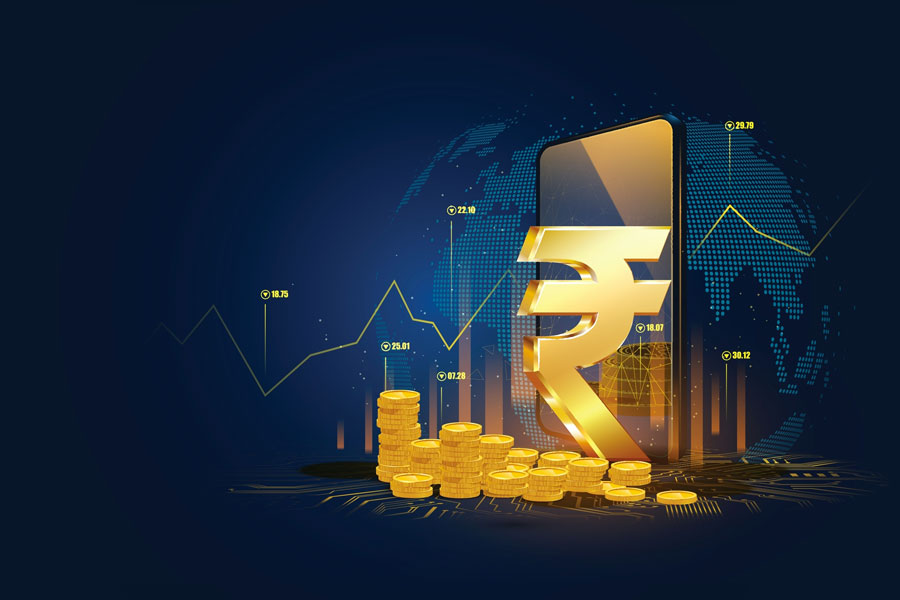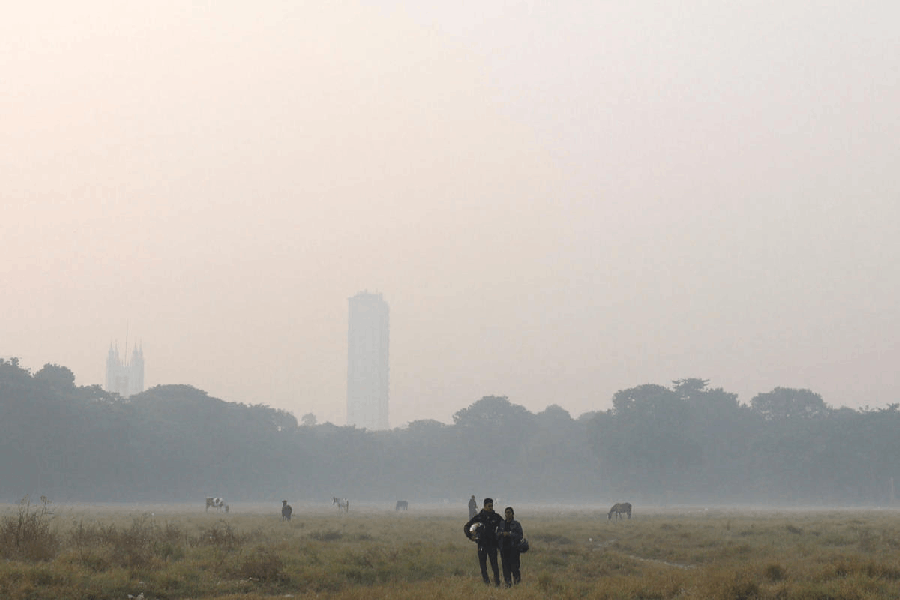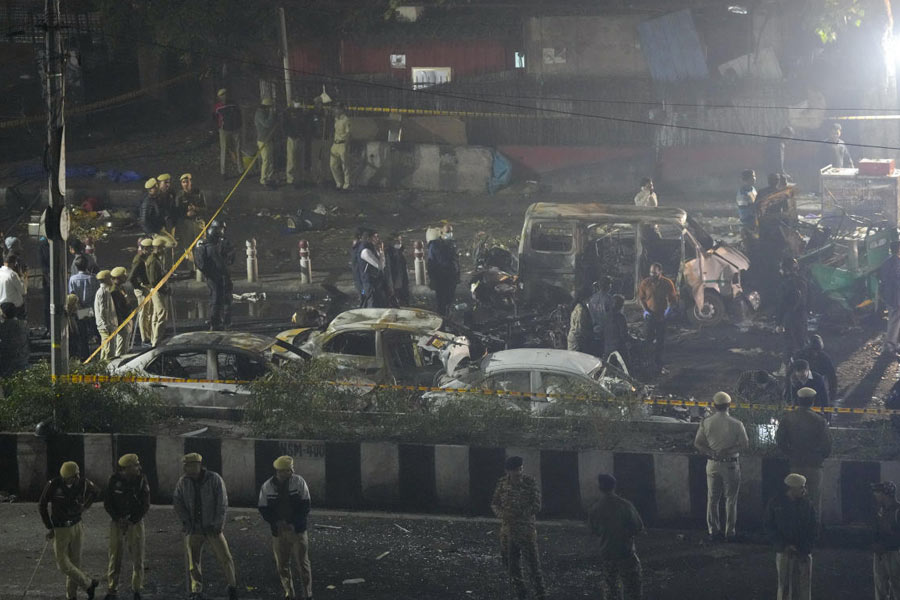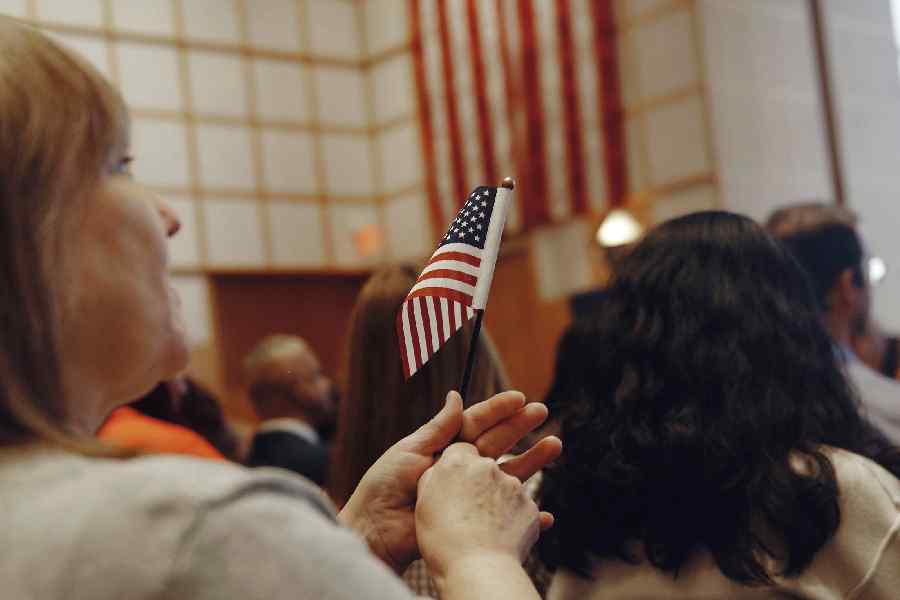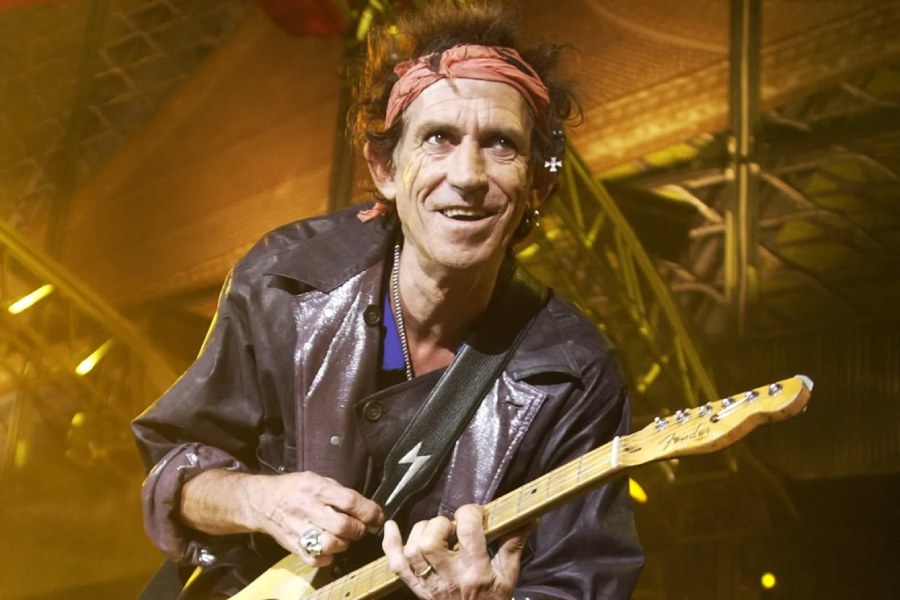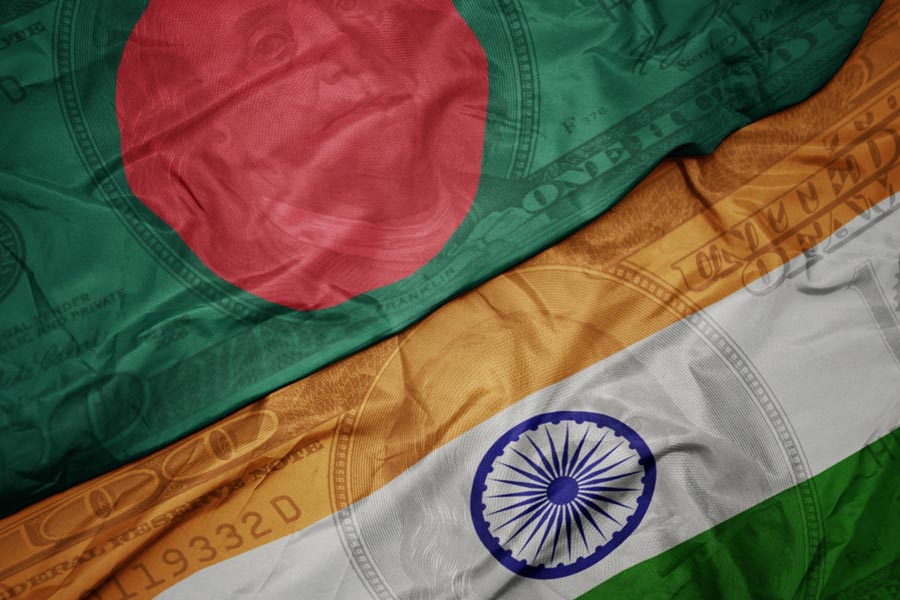 |
The concept
The problem of urban displacement, of old houses crumbling to the might of highrises, malls and multiplexes told not through the grumblings of the middle-class Bangali tenant, but the predicament of resident ghosts! But why ghosts? No one cares for them — not the ruling party, not the Opposition, not the media; there are no dharnas, michhils or candlelight vigils. Why? Because they don’t ‘matter’ and they are not a vote bank, silly! Full marks for the concept, director Anik Datta.
The ghosts
For Bhooter Bhobishyot to work, the ghosts had to work and what really works for them is their motley-ness! There are ghosts from all eras, social strata, professions and geographies. So one is a British-loving Rai Bahadur (the owner of the house, played by Paran Bandyopadhyay), another is an Englishman (George Baker). There is a druggie Bangla band singer and rebel (Samadarshi), a baawarchi from Siraj-ud-Daula’s kitchen (Pradip Dasgupta), and a refugee from Bangladesh who settles down after his death in a tree on the EM Bypass only for the tree to be chopped down and render him homeless again (Sumit Samaddar). Also, a die-hard romantic PYT (Mumtaz Sorcar), a Bihari rickshaw-puller who gets runover by a drunk driver while sleeping on a foothpath, an army martyr (Biswajit Chakraborty) and then the clincher — an OTT nyaka actress from yesteryear (Swastika Mukherjee).
The dialogues
A mix of slapstick, witty and plain ridiculous, the dialogues are absolutely ROFL. The lines are often delivered in rhyme to superb effect (ala Goopy Gyne Bagha Byne, and yes there are many references to Satyajit Ray throughout the film).
Case in bhooture point: The mod PYT tells old-school heroine Kadalibala (if there can be a name with grapes — Angurbala — then why not with banana?!) that she needs to be hip and happening, the response? “Ki bolish bachha, hip maaney toh pachha”.
There are subtle and witty ones too. When Ayan, an ad-filmmaker and aspiring film director, played by Parambrata (who’s writing a script titled Badly Bangali... get it?!), receives a call from his cameraman saying he is caught in an “oborodh” because of land acquisition problems at Bhringigram, Ayan says, “Bhringigram... maaney Nandi Bhringir Bhringi (referring literally to the Shiva devotee and obliquely to Nandigram).” Brilliant!
The social commentary
The film takes potshots at various issues without becoming preachy or paaka. There are references to caste, communalism, consumerism, urbanisation, love and revolution. There is party politics, extortion, superstition and idealism. Then there is the Ghoti-Bangal divide, expressed through love for Padma-r ilish versus chingri maachher malaikari. And then there are the Bangla bands, who Biplab, the narrator, calls an oxymoron!
The irreverence
There is nothing sacred in the film, from Che Guevera or Rabindranath. Po’od Podhan (well that’s how he pronounces his name, he is actually Promod Pradhan), a local goon, quotes Tagore and Nazrul Islam to justify extortion.
The actors
Everyone does their job, and how! Parambrata is convincing as the earnest ad-maker as is Sabyasachi Chakrabarty as the narrator, and Mir is brilliant as the greedy property developer. But it is really a ghost show — from Paran Bandyopadhyay to George Baker and Sumit Samaddar. Swastika is superb as the nyaka Kadalibala. Also, Kharaj Mukherjee as Promod Podhan and Saswata Chatterjee as Haatkata Kartik, the goon.





